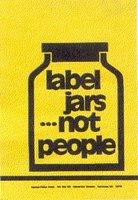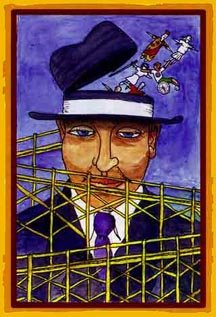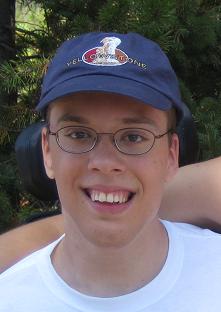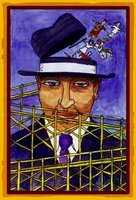To cure or not to cure, that is the question.
 My first interviewee, “Ashley,” discussed her perspective on a cure for her learning disability. Ashley said she would only accept a cure if it were on her terms. What society calls rigidity and stubbornness, Ashley calls discipline and focus. From her challenges, Ashley has learned patience and perseverance. She feels aspects of her learning disability have helped her become skilled at math, science, martial arts, and fitness. Ashley wonders if a one-size-fits-all cure of her learning disability could rid her of some of her very best qualities.
My first interviewee, “Ashley,” discussed her perspective on a cure for her learning disability. Ashley said she would only accept a cure if it were on her terms. What society calls rigidity and stubbornness, Ashley calls discipline and focus. From her challenges, Ashley has learned patience and perseverance. She feels aspects of her learning disability have helped her become skilled at math, science, martial arts, and fitness. Ashley wonders if a one-size-fits-all cure of her learning disability could rid her of some of her very best qualities.
Many people who have made valuable contributions in society are thought to have had learning disabilities. Would Leonardo da Vinci, Pablo Picasso, Albert Einstein, and Winston Churchill have wished there had been a cure? What about Jay Leno and Robin Williams? Would these and other people with learning disabilities share the same concerns about a cure as Ashley? Would the unique talents and gifts of these scientific and creative individuals be lost if their disabilities were cured?
I wonder how Franklin Delano Roosevelt would have been a different leader had he not had the perspective and skills learned from dealing with polio. How would Stevie Wonder and Ray Charles be different musicians if they were sighted? How would Beethoven's 9th Symphony be different if he had not lost his hearing?
These are interesting questions to think about. We, as a society, are quick to point out the negatives of a person's disability; with a little effort, strengths can be seen too. Disability is a natural part of human diversity and should be respected and treasured.
 This is a piece of artwork I like. It’s called Ramp Minds, by Dan Wilkins at The nth Degree.
This is a piece of artwork I like. It’s called Ramp Minds, by Dan Wilkins at The nth Degree.
The Label Jars picture comes from The Center on Human Policy










3 comments:
David I have often wondered if I would "take the cure" given the opportunity. I have muscular dystrophy and at 61 have been a wheelchair user for 10 years. Before that I stumbled and fell for about 10 years. I know where I would rather be!
One of the things I do for a living, among several things, is deliver disability awareness training to corporate and public sector Australia.
I often say to my course attendees, that I don't see myself as broken and I don't need fixing, as do many people with a disability. In fact I don't think I would take the cure if I was offered the chance. When asked why not I answer that I live a perfectly happy, functional and successful life without the use of my legs and with only 20% of normal upper body strength. So the question should really be, do I want to go through monumental change and upheaval that would come from being able to walk again? And I am reasonably certain the answer is no.
I heard a story about a woman who had been blind most of her life, recovering sight after an operation and being unable to handle the difference and causing acute depression. And I can understand how that might happen.
However let's face it, that group of people that I like to call "the severely able bodied" are never going to get that. It is just too ridiculous for words to them.
So it is nice to talk to like minded souls.
BTW my email address for anyone interested is johndlittle@bigpond.com
cheers
Thanks for your comment John. I think you are right that society doesn't understand why we might be hesitant to take "the cure". I like Ashley's way of looking at it - picking and choosing what to address, not taking someone else's "cure".
For me, I'm comfortable using a wheelchair, but I'd like to get rid of some pain. Pain interferes with my life. That cure I'd take in a second if there were no drawbacks.
I understand what you are saying about being used to living as you are. I am used to living with this body, and I like the lessons I have learned.
This discussion is easier, of course, since there is no big cure for cerebral palsy or muscular dystrophy.
David
David I am certain that my attitude to the cure or not is in no way affected by whether a cure is available or not. More, it is a reflection of my own state of happiness and well being.
John
Post a Comment